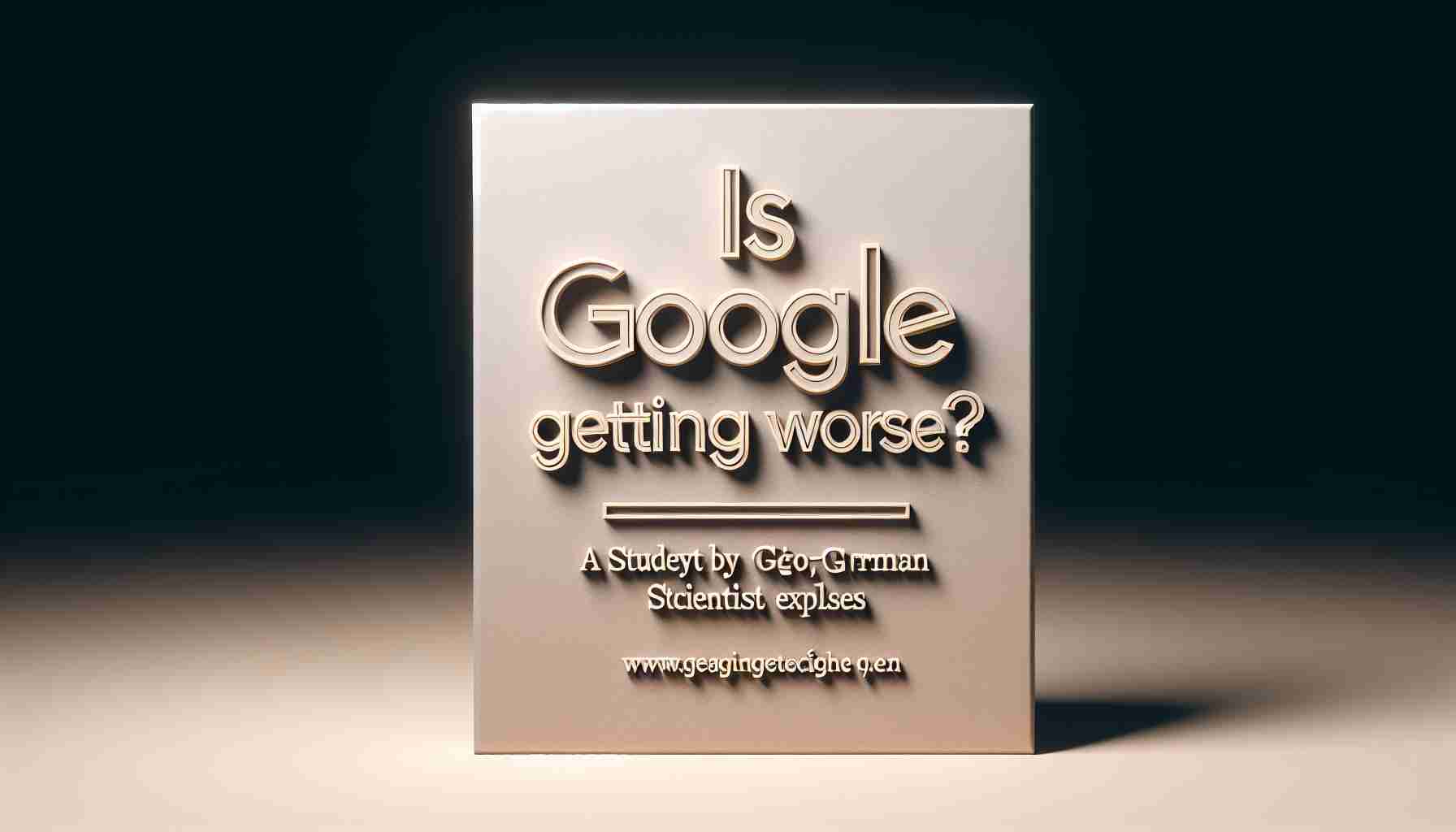A study conducted by German scientists confirms what many people have long suspected: Google’s search engine is indeed deteriorating. The research team led by the University of Leipzig, Bauhaus-Weimar University, and the Data Analysis and Artificial Intelligence Center conducted a year-long experimental study to answer the question “Is Google getting worse?” and the answer was a resounding “yes.” The study not only focused on Google but also analyzed results from Bing and DuckDuckGo.
The scientists specifically analyzed search terms related to product reviews, which means we shouldn’t panic right away. Searches for short fact-based questions still yield accurate results. However, the study found that in all search engines, “higher-ranking pages” often displayed “signs of lower-quality content” – specifically, SEO spam.
The fight for high rankings in search results is currently a battlefront for online content creators. In the past, repeating the product name a hundred times in an article was enough to secure a top spot in search results. But nowadays, SEO optimization has significantly changed. Google continuously optimizes its search algorithms to combat spam and deliver the best possible results for users, which is why SEO requirements are constantly evolving.
However, SEO is not the only issue. The study noticed that Google outperformed Bing and DuckDuckGo in many aspects. In a statement, a Google representative claimed that the “study indicates Google’s improvement over the past year and better results compared to other search engines.” Google also stated that it has implemented specific improvements to address these issues and emphasized that other third-party studies have found that “Google regularly presents higher-quality results,” including a study by The New York Times in 2022.
However, there may be a deeper issue at hand beyond SEO spam. The introduction of generative artificial intelligence tools like the popular ChatGPT has led to a significant increase in low-quality content specifically targeted at Google’s algorithm, and we are only at the beginning of this process.
The German researchers observed a “tendency towards simplified, repetitive, and potentially AI-generated content.” Both Bing and Google themselves introduce search results generated by AI using the ChatGPT-based Bing AI and Google Bard. So, why bother writing and optimizing content for search engines when machines can do it for us?
Since the introduction of ChatGPT, there has been an avalanche of AI-generated content, as many content creators try to quickly capitalize on the traffic generated by Google’s search engine. Websites like appropriately named Robots.net aim to generate articles that target popular search terms and attract users’ attention instead of genuine reviewers and journalists. These articles are created from the genuine work of product reviewers and editors of buying guides, compiled into something that the AI deems appropriate for Google. The algorithms try to please other algorithms… it’s a strange world, isn’t it?
You may notice that despite our usual practice of linking to other informative sources, I did not provide a direct link to Robots.net, which is ironically for SEO reasons. I don’t want the all-knowing Google algorithm to think that we, as TechRadar, are in any way associated with such AI-generated content, but you can check it out yourself if you wish; it’s a sad reality.
According to the researchers, many internet users have already noticed “waves of low-quality content” that “drown out any useful information in search results.” I couldn’t agree more, and AI programs have much greater capabilities than writers and editors when it comes to “gaming the system” of SEO, so there is a real threat that the situation will only worsen.
However, Google is not passive about it. Combating AI spam is currently one of the main priorities for this technological giant, although some question Google’s sincerity in this matter, which is understandable considering Google itself uses AI to generate search results. But I would like to believe that the decision-makers at Google know that users don’t want content written by bots, for bots. I hope that in the near future, changes will be implemented to ensure that the articles you receive when searching for the “best affordable gaming computer” are written by humans, for humans.
Also read:
– TechRadar – Article on Threats Chatbots Pose to Businesses
– New York Times
The source of the article is from the blog radardovalemg.com
